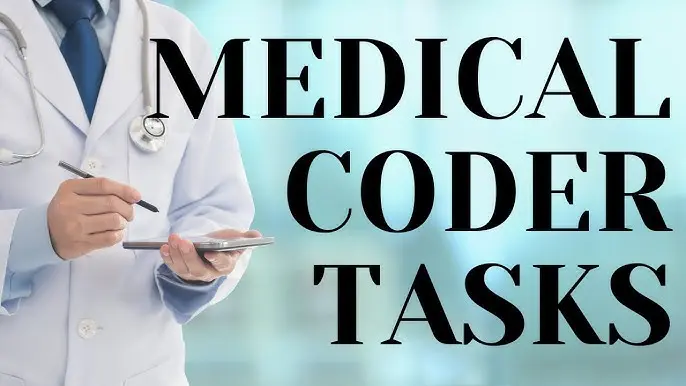
Introduction
In today's rapidly evolving healthcare landscape, the demand for skilled professionals who can accurately translate medical information into standardized codes is at an all-time high. Medical coding is a critical function in the healthcare industry, facilitating the billing process, ensuring compliance with regulations, and maintaining patient records. As a result, obtaining medical coding certification is not just a valuable asset; it is often a necessity for those wishing to establish a successful career in this field. This comprehensive guide will walk you through the essentials of medical coding certification, including its importance, types of certifications, preparation strategies, and career prospects.
Understanding Medical Coding
Medical coding involves the process of converting healthcare diagnoses, procedures, medical services, and equipment into universal alphanumeric codes. These codes, which are drawn from various coding systems such as the International Classification of Diseases (ICD) and Current Procedural Terminology (CPT), play a crucial role in healthcare billing and statistics. Accurate coding ensures that healthcare providers are reimbursed properly and helps in maintaining the integrity of patient records.
The Importance of Certification
Certification in medical coding serves as a benchmark for knowledge and expertise in the field. It demonstrates to employers that you possess the skills and knowledge necessary to perform the job effectively. Additionally, certified coders often enjoy greater job security, higher salaries, and more opportunities for advancement. Many healthcare organizations prefer or require certification, making it a critical step for anyone looking to break into the industry.
Types of Medical Coding Certifications
There are several types of medical coding certifications available, each catering to different aspects of the profession. The most widely recognized certifications include:
- Certified Professional Coder (CPC): Offered by the American Academy of Professional Coders (AAPC), the CPC certification is one of the most sought-after credentials in the field. It focuses on outpatient coding and requires knowledge of various coding systems.
- Certified Coding Specialist (CCS): The CCS certification, provided by the American Health Information Management Association (AHIMA), is more focused on inpatient coding and requires a deep understanding of complex coding procedures.
- Certified Coding Associate (CCA): Also offered by AHIMA, the CCA certification is an entry-level credential that is ideal for those who are new to medical coding.
- Certified Inpatient Coder (CIC): This certification, also from AAPC, is specifically designed for coders working in inpatient settings, focusing on hospital coding.
- Certified Outpatient Coder (COC): Another AAPC offering, the COC certification is tailored for coders who specialize in outpatient services.
Preparing for Certification
Successfully obtaining medical coding certification requires dedicated preparation and study. Here are some essential steps to help you on your journey:
1. Understand the Requirements
Before you begin the preparation process, familiarize yourself with the specific requirements for the certification you wish to pursue. Each certification has different prerequisites, including educational background, work experience, and examination criteria.
2. Enroll in a Medical Coding Program
Consider enrolling in a medical coding training program. Many community colleges, vocational schools, and online platforms offer courses that cover essential coding concepts, medical terminology, anatomy, and billing procedures. Completing a formal training program can provide you with a strong foundation and better prepare you for the certification exam.
3. Utilize Study Materials
Invest in study materials such as textbooks, online resources, and practice exams. Many organizations, including AAPC and AHIMA, offer study guides and practice tests that can be invaluable in your preparation. Make sure to allocate sufficient time for studying and review regularly to reinforce your learning.
4. Join Study Groups
Consider joining a study group or finding a study partner. Collaborating with others can enhance your understanding of complex topics and provide motivation as you work towards your certification. Additionally, many local chapters of coding organizations offer study sessions and networking opportunities.
5. Practice Coding
To excel in the certification exam, you need to be proficient in coding. Practice coding real-life scenarios using coding manuals and software. Familiarize yourself with the various coding systems, and make sure you can accurately apply them in different contexts.
Taking the Certification Exam
Once you feel prepared, it's time to take the certification exam. Here are some tips to help you succeed:
1. Review the Exam Format
Understand the structure of the exam you will be taking. Familiarize yourself with the types of questions, time limits, and materials you can bring, such as coding manuals and reference materials.
2. Manage Your Time
During the exam, time management is crucial. Allocate your time wisely for each section and avoid spending too long on any single question. If you're unsure about an answer, mark it and move on. You can come back to it later if time permits.
3. Stay Calm and Focused
Exam day can be nerve-wracking, but staying calm and focused is essential. Take deep breaths, read each question carefully, and trust in your preparation. A positive mindset can greatly influence your performance.
Career Opportunities in Medical Coding
Upon successfully obtaining your medical coding certification, a wealth of career opportunities awaits you. The healthcare industry is diverse, and certified coders can find employment in various settings, including:
- Hospitals: Coders in hospitals primarily work on inpatient cases, ensuring accurate coding for patient admissions, treatments, and procedures.
- Outpatient Clinics: Outpatient coders focus on services provided in clinics, including diagnostic tests and minor procedures.
- Health Insurance Companies: Coders in insurance companies review claims and ensure that they are coded correctly for reimbursement.
- Government Agencies: Opportunities also exist within government entities, such as Medicare and Medicaid, where coders help manage claims and compliance.
- Freelance and Consulting: Experienced coders may choose to work as freelancers or consultants, providing coding services to various healthcare providers.
Conclusion
Medical coding certification is a vital step for anyone seeking a rewarding career in the healthcare industry. By understanding the importance of certification, exploring the available options, and dedicating time to thorough preparation, you can unlock your future in medical coding. With the right skills and credentials, you will not only secure a stable job but also contribute significantly to the efficiency and accuracy of healthcare delivery. Embrace the journey, and get ready to embark on a fulfilling career path!






